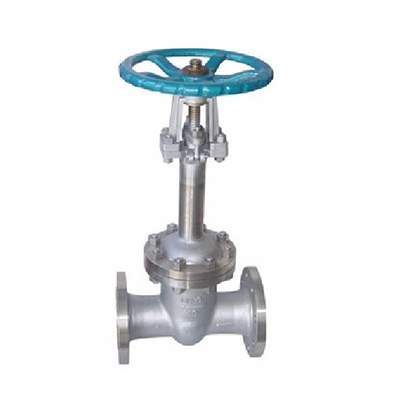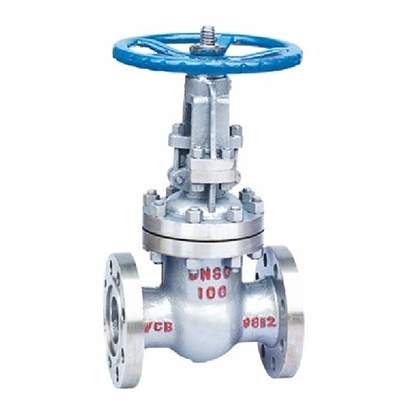Welcome to My Blog!
Before we dive into the content, I’d love for you to join me on my social media platforms where I share more insights, engage with the community, and post updates. Here’s how you can connect with me:
Facebook:https://www.facebook.com/profile.php?id=61563865935136
Now, let’s get started on our journey together. I hope you find the content here insightful, engaging, and valuable.
Introduction

When it comes to managing fluid and gas flow in pipelines, selecting the right valve is crucial for ensuring smooth operations. One such essential valve is the gate valve, renowned for its gate valve advantages and numerous benefits. This article delves into the advantages of gate valves, their applications, and why they shold be a key consideration for your system. Gate valve advantages are clear when you need reliable performance, durability, and high flow capacity, all while maintaining a simple, effective design. Understanding these advantages can help you make an informed decision when designing or upgrading your piping systems.
Gate valve advantages are especially important for industries that require quick on/off control without compromising flow capacity. By choosing gate valves, businesses can ensure they are getting a valve that provides long-term reliability and cost-effectiveness.
What Is a Gate Valve?
A gate valve is a type of valve used to start or stop the flow of liquids or gases within a pipeline. It works by raising or lowering a gate (also known as a wedge) inside the valve to block or allow flow. These valves are typically employed in systems where a full, unobstructed flow is required, making them ideal for various industries, including water treatment, oil and gas, and industrial applications. When fully open, a gate valve allows for a smooth, uninterrupted flow of the medium, ensuring efficient operations. The gate valve advantages include its ability to maintain these operational features for extended periods of time, without the need for constant adjustments.
By understanding the gate valve advantages, users can select the right valve for their system to ensure minimal maintenance and reliable service.
Key Gate Valve Advantages
Full Flow Capacity
One of the key gate valve advantages is their ability to provide full flow when fully open. This makes them ideal for systems where uninterrupted flow is critical, such as in water treatment plants, oil pipelines, or chemical processing. Unlike other valve types, such as globe valves, which restrict flow, gate valves ensure minimal resistance when in the fully open position. This characteristic reduces the pressure drop across the valve and maintains the efficiency of the system. The gate valve advantages in providing high-flow capacity make them indispensable for many industries.
In systems with high-volume flow needs, the gate valve advantages of full flow capacity ensure that you can maintain peak operational performance.
Ideal for On/Off Applications
Gate valve advantages are especially evident in on/off flow control, as they are primarily designed to either fully open or fully close, providing a complete seal and ensuring no leakage. This makes them an excellent choice for systems where flow needs to be quickly stopped or started without gradual adjustments. Their simple operation allows for precise control, making them ideal for applications where rapid flow changes are necessary. The gate valve advantages in on/off applications ensure the system’s ease of use and performance.
With gate valves, users can count on reliable and straightforward control over fluid or gas flow, which is crucial for many industrial settings.
Low Flow Resistance
Due to their design, gate valve advantages include minimal flow resistance when open, ensuring that the system operates at optimal efficiency. This is particularly crucial in systems where high-volume flow is necessary, such as water distribution networks or oil pipelines. With their smooth internal geometry, gate valves allow fluids or gases to flow with minimal friction, reducing energy consumption and increasing system performance. The gate valve advantages of low flow resistance also contribute to reducing overall operational costs.
The gate valve advantages of low resistance can help minimize energy costs and optimize the overall performance of your system.
Durability and Longevity
Gate valve advantages also extend to their durability. Gate valves are built to last, with a robust construction that resists wear and tear, even in high-pressure environments. This durability ensures that gate valve advantages are realized over an extended lifespan, which makes them a cost-effective choice in the long run. Their sturdy design allows them to perform reliably under a range of extreme conditions, including high temperatures, heavy loads, and corrosive environments.
The gate valve advantages in durability are one of the most significant reasons why industries continue to use them in harsh conditions.
Versatility in Applications
Gate valves can be used across a wide range of industries and applications, including water supply systems, oil and gas pipelines, HVAC systems, and chemical processing. Their versatility allows them to perform in various conditions, from high-pressure systems to low-temperature environments. Whether it’s controlling the flow of water in a municipal supply system or managing hazardous chemicals in a factory, gate valves are designed to meet diverse operational needs. The gate valve advantages are truly evident when versatility is a key requirement for your system.
Gate valve advantages give industries the flexibility to adapt to different environments and conditions, making them a reliable choice for various applications.
Materials Used in Gate Valves
Gate valves are available in a variety of materials, depending on the application’s requirements. Common materials include:
- Cast iron: Ideal for low-pressure systems, cast iron gate valves are a cost-effective option for non-corrosive environments.
- Stainless steel: Offers resistance to corrosion, making it suitable for harsh environments, including offshore oil rigs and chemical processing plants.
- Carbon steel: Used in systems that require strength and durability under high pressure, carbon steel is commonly used in industries such as petroleum and power generation.
- Bronze: Provides excellent corrosion resistance for specific applications, such as marine environments or systems dealing with seawater.
Each material brings its own set of gate valve advantages, which makes it essential to choose the material best suited to your system’s needs.
Gate Valve Designs: Types and Features
Wedge Gate Valve
The wedge gate valve uses a wedge-shaped gate to seal the flow. This design offers excellent sealing capability and is widely used in water and wastewater systems. The wedge shape provides a tight seal that prevents leakage, even under high-pressure conditions. The gate valve advantages of the wedge design include better sealing efficiency and longer operational life. Wedge gate valves are ideal for ensuring reliability in critical systems.
The gate valve advantages of wedge design include high-pressure resistance and durability in tough environments.
Parallel Gate Valve
Parallel gate valves have a gate that is parallel to the flow direction, offering improved sealing capabilities. These are typically used in systems with moderate to low pressure. The parallel design ensures that the gate fits closely against the seat, reducing the risk of leakage and ensuring consistent performance over time. The gate valve advantages of this design include enhanced sealing ability and ease of use in specific applications.
By choosing parallel gate valves, industries benefit from the gate valve advantages of simple design and reliable function.
Performance Considerations When Choosing Gate Valves
When selecting a gate valve, several factors should be taken into account to maximize performance, including:
- Pressure and temperature requirements: Ensure the valve material can withstand the operating conditions. High-temperature systems may require special materials like stainless steel, while low-pressure systems may be fine with cast iron.
- Flow rate: Choose a gate valve that can handle the desired flow rate without restriction. This is especially important for systems like water pipelines, where consistent flow is essential.
- Sealing capabilities: Look for a valve with a high-quality sealing system to prevent leakage. The valve’s sealing system will directly impact its ability to handle pressure and prevent costly leaks.
Considering these factors ensures that the gate valve advantages can be fully realized, leading to an efficient and long-lasting system.
Gate Valve vs Other Types of Valves
| Feature | Gate Valve | Ball Valve | Globe Valve |
|---|---|---|---|
| Flow Control | On/Off | On/Off | Throttling |
| Flow Restriction | Low | Moderate | High |
| Sealing Ability | Excellent | Good | Good |
| Application | High-Flow Systems | Precision Flow Control | Regulated Flow Control |
| Maintenance Needs | Low | Moderate | High |
As seen in the table, gate valve advantages include full-flow capacity and minimal flow resistance, making them a top choice in high-flow applications.
Gate Valve Maintenance Tips

To maximize the lifespan and efficiency of your gate valves, regular maintenance is essential. Here are some tips for maintaining your gate valves:
- Regular Inspection: Inspect valves regularly for signs of wear, corrosion, or leakage. Regular checks help identify issues before they escalate.
- Lubrication: Ensure the valve stem and threads are properly lubricated to avoid seizing. Proper lubrication can extend the valve’s life and maintain its performance.
- Cleaning: Keep the valve body clean from debris or buildup that could affect its performance. Periodic cleaning ensures smooth operation and prevents unnecessary wear.
Proper maintenance helps ensure that you continue to benefit from the gate valve advantages for years to come.
Conclusion
Gate valves are a versatile and reliable option for fluid and gas control systems. Their advantages, such as minimal flow resistance, excellent sealing capability, and durability, make them an excellent choice for many applications. Whether you’re working with high-pressure systems or need a valve for a low-temperature environment, gate valves offer long-lasting performance.
If you’re looking to incorporate gate valves into your system for optimal performance, contact us today for more information on how our products can meet your needs.
FAQ
What are the primary benefits of gate valves in industrial applications?
The gate valve advantages in industrial applications include low flow resistance, full flow capacity, and durability. These benefits make them ideal for systems that require reliable, on/off control with minimal pressure drop.
Are gate valves suitable for throttling purposes?
Gate valves are not designed for throttling purposes, as they are best suited for on/off flow control. The gate valve advantages are best utilized in systems where flow needs to be completely stopped or started.
Can gate valves be used in high-pressure systems?
Yes, gate valves can handle high-pressure systems, and their gate valve advantages make them ideal for demanding conditions. Their durable construction ensures they can withstand significant pressure without failing.
